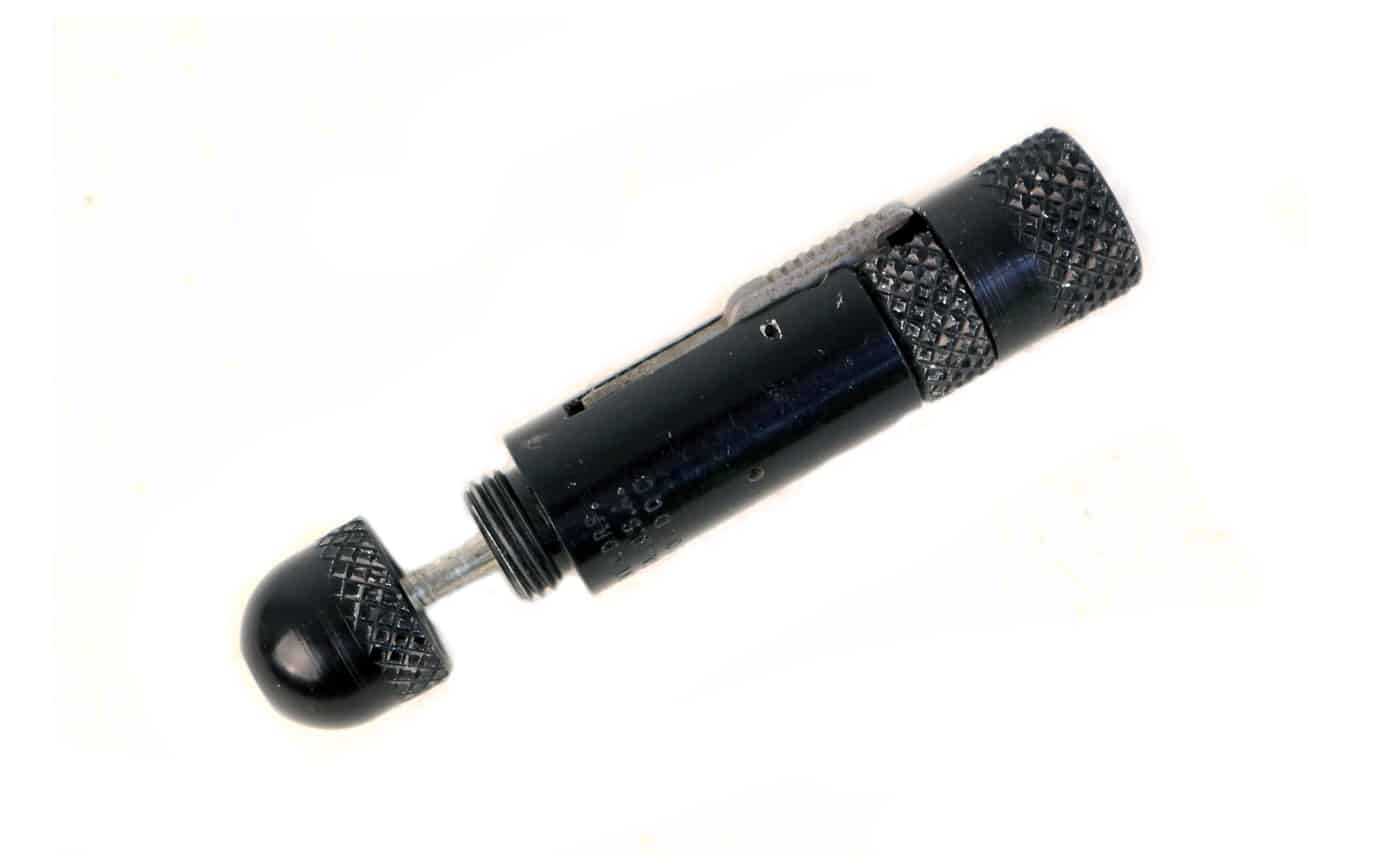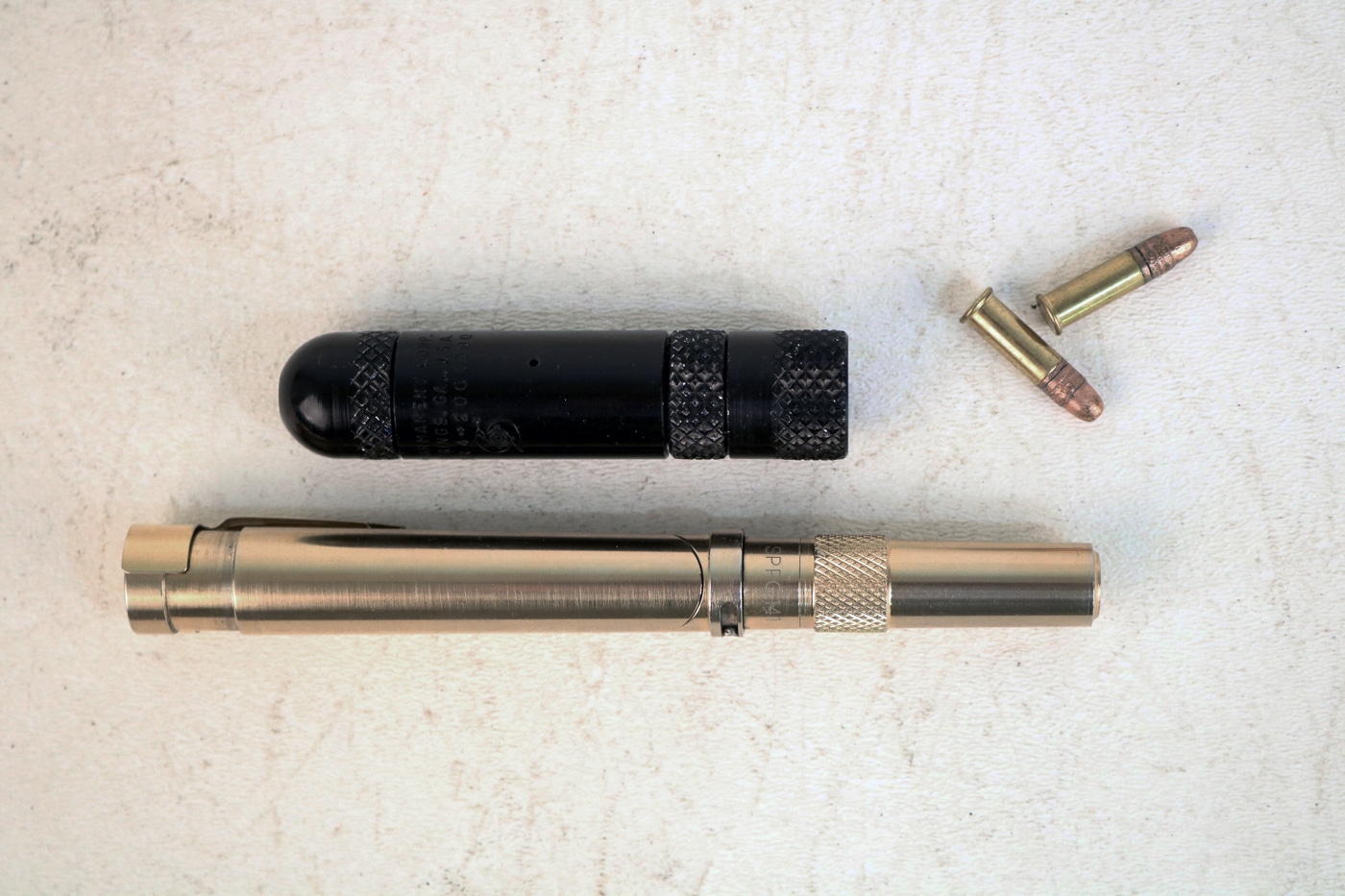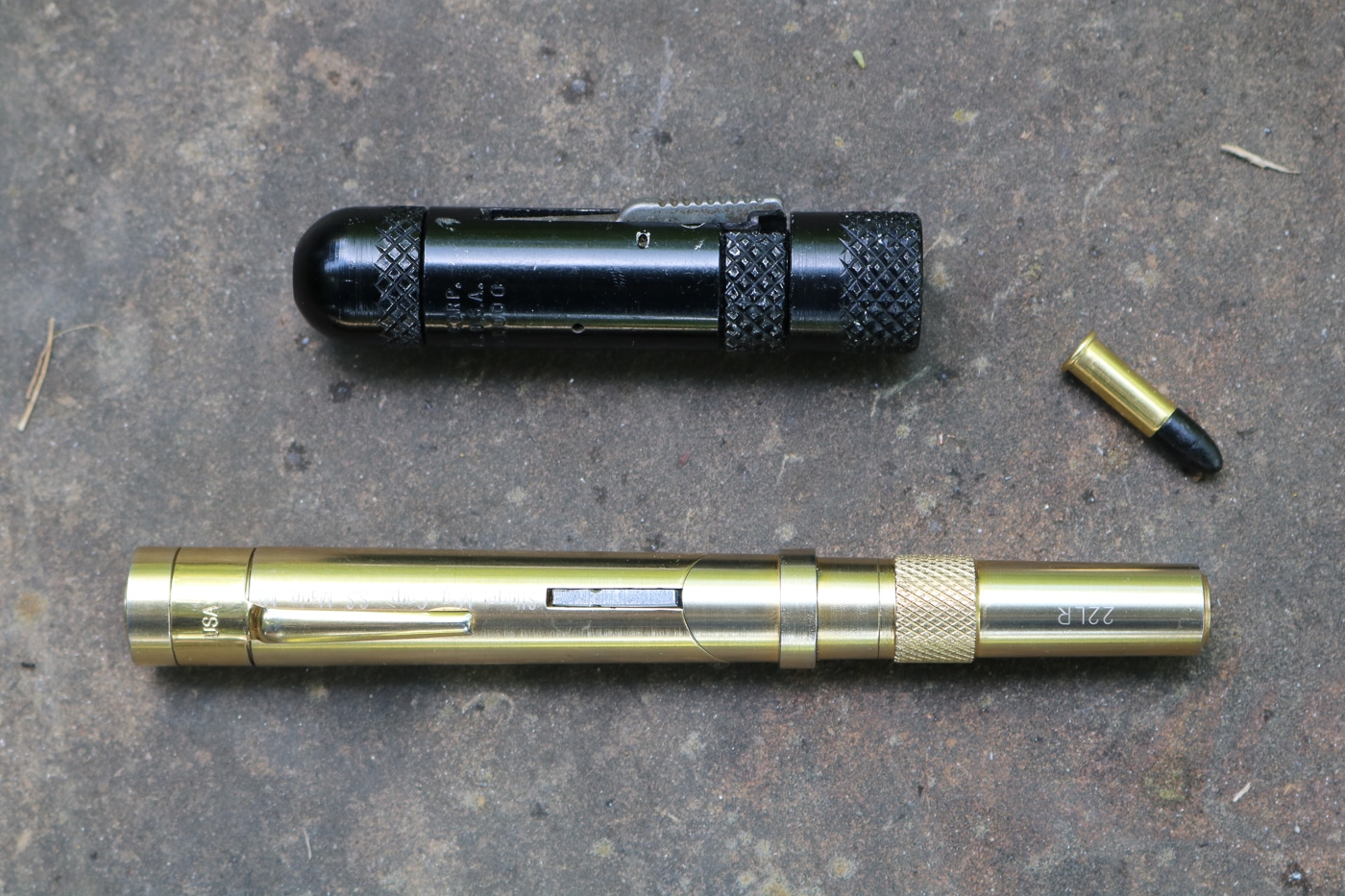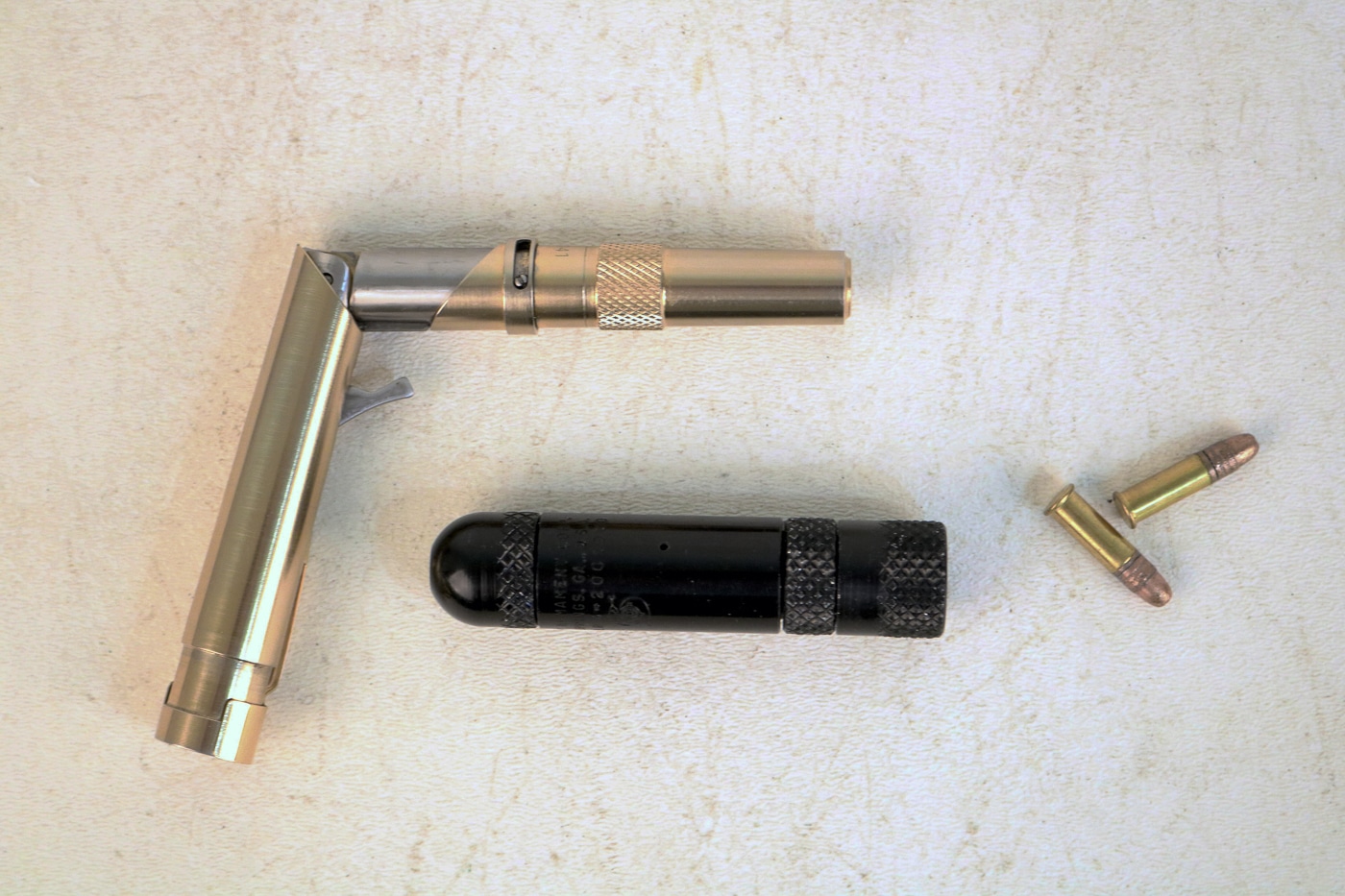Subcompact guns like the Springfield Hellcat are small enough to hide in the front pocket of your jeans. They shoot straight, reliably and well. By contrast, the M1A is 44” long and weighs 8.5 lbs. Those sorts of tools are quite obviously firearms.
However, there’s some seriously odd stuff out there as well. One of the weirdest of the lot was the Stinger. The Stinger looks vaguely like a slightly oversized tube of highly lethal Chapstick. The 1970’s-vintage Stinger does not have a pistol grip, magazine or sights. It’s the sort of thing you really could hang onto your keychain.
Origin Story
Mitch WerBell III was a veteran of the WWII-era OSS (Office of Strategic Services). He was a real-deal spy. When he wasn’t overthrowing nation-states, WerBell kept busy designing gun swag.

WerBell was a prominent figure in the 1970’s-era Military Armament Corporation of MAC-10 submachine gun fame. While there, he designed the distinctive two-stage sound suppressor used on Gordon Ingram’s hyperactive little bullet hose. The MAC crew under WerBell also bodged together the Stinger.
[Be sure to see another spy gun: the Wellrod pistol.]
The MAC Stinger was patterned after a bizarre disposable WWII-era spy gun called the T-2. The T-2 fired a single .22 rimfire round and did indeed look like a pen at cursory glance. It even included a pocket clip. By contrast, WerBell’s MAC Stinger was at least reusable.
These nifty little guns were made from aluminum, so they weighed about nothing. MAC offered them either anodized gold or painted black. The Stinger was 3.25” long and weighed a paltry 2.25 oz.

The MAC Stinger is one of those curious firearms that seems designed for some edgy hypothetical mission that doesn’t actually exist in the real world. Brooding assassins lurking in the shadows snuffing people with pen guns is more the stuff of adventure fiction writers than real-world covert operators. In the case of the Stinger, you might actually be better off with a decent baseball bat.
Each Stinger came with a short leather carrying strap to help keep it properly oriented in a pocket. The gun was designed for deep concealment and excelled at that. Everywhere else, however, it was little more than a deathtrap.
The Stinger came with two otherwise-identical barrels. One was intended for practice. The other was sealed on the end with a little red plastic shoot-away stopper to exclude pocket lint. These guns originally cost $36 apiece. That would be about $200 today.

Accessories included a ludicrous 16” barrel as well as a compact sound suppressor. Suppressor technology was in its infancy back then, so these never quite looked right or performed terribly well. These rare accessories are desirable collector’s items today.
What Does the BATFE Think?
Uncle Sam struggles to get his head around the Stinger. It’s not a conventional pistol, and it’s certainly no rifle. In the eyes of the BATFE, it is therefore an AOW, or Any Other Weapon.

AOWs include conventional handguns with vertical foregrips, firearms that look like canes, umbrellas, cell phones, pocket calculators, or pen guns that remain pen-shaped when they are fired. Basically, if it’s scary and it doesn’t fit into any other handy category, it’s an AOW.
AOWs transfer in the same manner as machine guns, sound suppressors, cannons and live hand grenades. The paperwork is otherwise identical. However, where the typical transfer tax is $200 for that other stuff, the AOW tax is only five bucks.
Trigger Time
The smoothbore barrel is only a quarter-inch long. Have reasonable expectations. Just shooting this gun without hurting yourself or somebody you care about is a realistic aspiration.
There is a hole to accept a small wire safety, but mine is missing. A replacement is improvised easily enough. However, I have read that it is possible to load the gun and have it go off spontaneously once the wire is removed. There’s a reason there aren’t more of these little things around.
Once the gun is thusly cocked, load a round into the barrel and thread it in place. Remove the wire safety, point the gun at your target, and squeeze. If you’re lucky, the bullet will go someplace close to where you wish it to. Beyond contact range, the Stinger becomes an area weapon system.

There is a knurled ring up front that rotates to secure the trigger in place. Mine seems to be inexplicably and irretrievably locked in the fire position. Despite my very best efforts, I have been unable to break it free. As a result, my example is deadly as soon as it is charged and cocked. I’d honestly sooner carry a live cobra in my pocket than I would pack this thing with a hot chamber. Interestingly, the firing pin strikes the base of the case in two places on opposite sides of the rim.
I’m not the only guy in the world who rightfully fears this little monster. Mitch WerBell’s son purportedly once inadvertently shot himself with one of his Dad’s Stingers. He supposedly did fine, but I think there’s a message there.
Conclusion
The MAC Stinger is tactically worthless. It always has been, and it always will be. However, the Stinger does represent a fascinating glimpse into the Cold War-era when folks really did think covert operatives needed little lipstick-sized guns that could easily blow their own fingers off. Compact, lightweight, and adorable in a terrifying sort of way, the MAC Stinger is classic Cold War spy chic.
Editor’s Note: Please be sure to check out The Armory Life Forum, where you can comment about our daily articles, as well as just talk guns and gear. Click the “Go To Forum Thread” link below to jump in and discuss this article and much more!
The post MAC Stinger: Most Dangerous Spy Gun Ever? appeared first on The Armory Life.
Read the full article here








